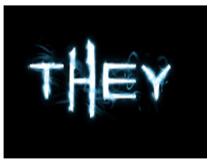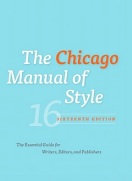“What are you reading?”
I didn’t even jump at the voice at my elbow, in spite of the fact I had thought myself to be alone in the room. These interruptions were far too common of late, and I was becoming conditioned to them. I barely glanced up to see which of my characters was speaking.
“I’m reading about they,” I replied.
“You mean,” my arrogant elf corrected me, “you are reading about them.” He arched an eyebrow smugly.
“Nope. I meant what I said. I’m reading about they.”
The elf snickered. “And you call yourself a writer! You don’t even know proper grammar!”
“Actually, I know more than you think.”
“Of course you do.” He gave me a condescending look, and took a seat next to me at the desk. “So, who is it you are reading about?”
“I’m not reading about anyone. I’m reading about they.”
“Them,” he corrected me again.
“No, I’m not reading about them. I’m not reading about anyone. I’m reading about they.” I was getting annoyed.
“Okay,” he said with a sneer. “So what are they doing?”
“They is…”
“They are,” he corrected, his haughty voice severely grating my nerves.
“They is the American Dialect Society’s Word of the Year for 2015.” I shot him a superior look, which he answered with a blank stare.
“In its 26th annual Words of the Year vote,” I read aloud from the article on the computer screen, “the American Dialect Society voted for they, used as a gender-neutral singular pronoun, as the Word of the Year for 2015.”

Still the blank stare.
I offered an example. “Someone has been calling staff meetings without my approval, and they had better stop it.”
The arrogant one didn’t even have the grace to look guilty, as he pounced on the sentence and argued, “You mean he had better stop it.”
“I mean you had better stop it,” I retorted, skewering him with a sharp look. “But what if I wasn’t sure it was you? It might be the cleric. Rather than the cumbersome he or she had better stop it, I would simply use they in the gender-neutral singular – they had better stop it.”
“Illogical. You know it was not the cleric.”
I glared at him. “Are you being intentionally obtuse?”
“Hey, that’s my line!” he objected, jumping from the chair.
Someone behind us snickered. “Yes,” a melodious voice replied. “A line you use on me more than once in the pages of book 3.”
I expanded my glare to include the cleric as she walked into the room.

“Do you two think you can take this conversation elsewhere? I really need to do more research on they.”
“On them,” the cleric chided, gently, having missed the first part of the conversation.
The arrogant one snickered again.
“No, on they,” I insisted.
“If the pronoun is the subject of the sentence, the proper form is they; however, if you are conducting research on these people, you would use the objective form. You are conducting research on them.”
“I’m not conducting research on anyone. I’m conducting research on a word.”
The cleric stared, her brow knitted in confusion.
The arrogant one elucidated, “Some group named that word as its word of the year last year, when used as a…how did you put it? A gender-neutral singular pronoun?”
“Yes. They has long been used in informal conversation to mean a single individual when the gender of that person was unknown. It’s less awkward than saying he or she. For example, someone raided the refrigerator last night and they ate my last piece of chocolate cake. Simpler than saying he or she ate it.”
“Well, last week, you said you were on a diet. Someone was just trying to be helpful.”
“You needn’t say someone, as if you didn’t know who ate the cake,” the arrogant one snapped at the cleric.
“I was hungry,” she replied, her cheeks burning.
“The identity of the person who ate the cake isn’t the point,” I replied testily. “The use of the pronoun they is the point. It is frequently used as singular in casual conversation.”
“Okay, so they is an acceptable substitute for the phrase he or she when the gender of the person about whom you are speaking is unknown,” the arrogant one conceded. “If you already know this, why must you engage in additional research?”
“Because, in spite of its acceptance in conversational speech, the gender-neutral singular they might not be correct to use in writing. For many years, in formal speech, as well as in most writing – journalism, essays, fiction and non-fiction stories and books – the singular they has not been acceptable. Now that its use has been spotlighted by the American Dialect Society, and given some legitimacy, I have to check various style manuals to see if it can be used in writing. I need to check The Elements of Style by Strunk and White, The Associated Press Stylebook, The New York Times Manual of Style and Usage, and The Chicago Manual of Style, among others, to see if any of them are accepting it.”

“Why is that so important?” the arrogant one asked.
“A writer has to stay current on what is being accepted in areas of spelling, grammar and word usage,” I explained. “I need to know whether to use he or she, he/she, or (s)he when I am writing…or if the singular they is acceptable.”
I turned back to the computer screen. “Hmmm…here’s one. The Washington Post Style Guide now accepts the singular they.” I continued searching through various websites. “It does not appear that the Chicago Manual of Style agrees. And I can’t seem to find a definitive answer for the other major style manuals.”
“They don’t all agree?” the two elves seemed shocked.
“Nope.”
“How do you know which manual to follow?”
“It would depend on the market for which I was writing and which style manual they require their writers to use.”
“So, more research?” the cleric asked, nodding toward the computer screen.
“Yup.”
“I find it all rather confusing,” the cleric admitted. The arrogant one nodded in agreement.
“Really?” I tried to sound sympathetic. “Well, I hate see my favorite characters so confused. Why don’t the three of us forget about this research for right now, and watch something on the internet?”
I found a clip of the classic Abbott and Costello skit “Who’s on First?” and settled back to watch my characters’ heads explode.
Feel free to stop back from time to time. If anyone cares to discuss evolving grammar and style manuals, I’ll keep the porch light on for them.
Thanks for the update on the word THEY. Nice to know THEY can be used as a singular pronoun. At least by one source for now.
LikeLiked by 1 person
Gotta keep up on all these important developments, James! 😉
LikeLike
My goodness! That elf of yours is quite rude! Tsk, tsk! Loved the info on “they.”
LikeLiked by 1 person
Yes, indeed, he is rude, arrogant and very annoying. But I guess I am to blame – his psychiatrist tells him I made him that way. 😉
LikeLiked by 1 person
Interesting point. I’ve often used they as a casual singular pronoun without a second glance backwards. I checked my Style manual (6th edition – Australian, Snooks & Co, pg75/76.) It agrees that formally the word should never be used in the singular form. However it sums up by saying: “The evolving use of the singular they, them and their makes an interesting comparison with the evolution of the singular use of you in place of thou and thee in early modern English.”
LikeLiked by 1 person
That’s what makes the English language so interesting, and so challenging – it is constantly evolving.
LikeLike
I had never thought about different places requiring adherence to specific style (manuals). I’ve used “they” for singular for some time. The only time I really have an objection to it is when more than one party has been referred to, and then when “they” is used, its not clear exactly to which “they” is being referred. Or, maybe I just get confused easily 😉 I do love the dialogue between you and your characters.
LikeLiked by 1 person
I never really thought much about it, either, Rebecca, until I happened to see that article about it being named word of the year. I do think that too many pronouns can cause a great deal of confusion. When I am editing my writing, I have to make sure it is always clear to whom a pronoun is referring. And by the way, my characters and I thank you – we are glad we can provide some entertainment! 🙂
LikeLiked by 1 person